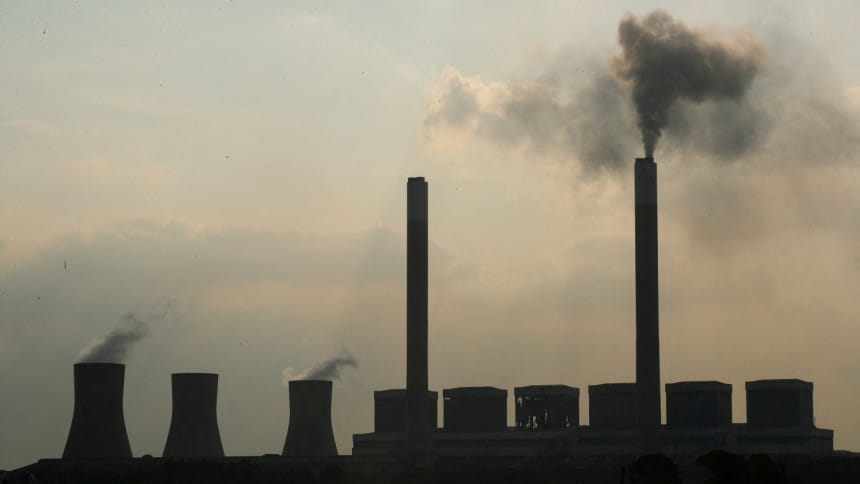Is carbon offsetting a good climate solution?

How will global textile supply chains meet their ambitious targets of reducing carbon emissions? This is a pertinent question, one which is very much the elephant in the room. Across the broader industry, there has been research that at least two-thirds of major corporations will use some kind of carbon offsetting tool to meet climate targets. In other words, they will reduce their own emission where possible, but if this is not enough to help them achieve net zero or other targets, they will invest in projects that reduce or capture greenhouse gases to make up for any shortfall.
While carbon offsetting has gained momentum and support, it is not without its share of critics. There are many obvious pros to carbon offsetting and, done correctly, it can be an effective tool. However, some key concerns need to be addressed.
At a basic level, offsetting enables immediate action to reduce emissions. By investing in projects such as reforestation, renewable energy, or methane capture from landfills, individuals and organisations can effectively mitigate their carbon footprint immediately. Offsetting enables businesses to act now, and many believe this is required to address the urgency of the climate crisis.
Furthermore, offsetting projects can be located anywhere in the world, allowing people and companies to support initiatives in regions with the greatest need or potential for emission reduction. They often see a transference of money and resources from the richer Global North to the poorer Global South. In theory, this is a positive, socially equitable outcome.
Technological advancements in carbon capture are another potential benefit. Offsetting encourages the development and adoption of green technologies. Investments in renewable energy, for example, can accelerate the transition to a sustainable energy infrastructure. Many businesses are adopting carbon offsetting as part of their corporate social responsibility (CSR) initiatives. This not only demonstrates a commitment to environmental stewardship but also helps improve a company's public image and customer loyalty.
At the fundamental level, carbon offsetting is a means to comply with emission reduction targets and regulations imposed by governments and international agreements, such as the Paris Agreement. It offers a cost-effective way for companies to meet their legal obligations.
All of this said, in the past couple of years, there has been significant kickback against carbon offsetting. I am seeing more and more people saying offsetting is simply a means of "paying to pollute," enabling companies to continue business as usual.
One of the primary criticisms is the difficulty in measuring offsetting's true impact. Some projects may not deliver the expected emission reduction, leading to "greenwashing," through which companies claim to be more environmentally responsible than they truly are.
Offsetting may also create a moral hazard, as it allows individuals and companies to continue emitting greenhouse gases without making substantial efforts to reduce their emissions directly. Besides, where do we draw the line in terms of how much of their emissions they offset and what level of offsetting is acceptable?
It is also notable that the longevity of emission reduction from offset projects is not guaranteed. Reforested areas, for example, may face threats from deforestation or wildfires. Forests being cut down shortly after project completion and industry corruption have made global headlines in the past.
The carbon offset market is not immune to unethical practices. There have been cases of offset projects causing harm to local communities, such as displacing indigenous populations or depriving them of their land rights. Given that these projects are often carried out by third parties in remote parts of the world, can fashion companies using them be sure they are ethical and responsible?
Critics have also argued that carbon offsetting can perpetuate global inequalities. Wealthier individuals and corporations can afford offsets, while the burden of emission reduction falls disproportionately on marginalised communities and developing countries.
Some also argue that offsetting can divert attention and resources away from systemic changes needed to address climate change. A focus on individual actions and offsetting may overshadow the necessity of comprehensive policy changes and emission reduction.
To harness the benefits of carbon offsetting while minimising its drawbacks, I believe it is crucial to ensure transparency, accountability, and adherence to ethical principles in offset projects. Moreover, offsetting should complement, rather than substitute for, direct emission reduction efforts at the source. Ultimately, a holistic approach – combining offsetting, systemic changes and reduction strategies – is essential for addressing the climate crisis.
Mostafiz Uddin is the managing director of Denim Expert Limited. He is also the founder and CEO of Bangladesh Denim Expo and Bangladesh Apparel Exchange (BAE).
Views expressed in this article are the author's own.
Follow The Daily Star Opinion on Facebook for the latest opinions, commentaries and analyses by experts and professionals. To contribute your article or letter to The Daily Star Opinion, see our guidelines for submission.

 For all latest news, follow The Daily Star's Google News channel.
For all latest news, follow The Daily Star's Google News channel. 













Comments